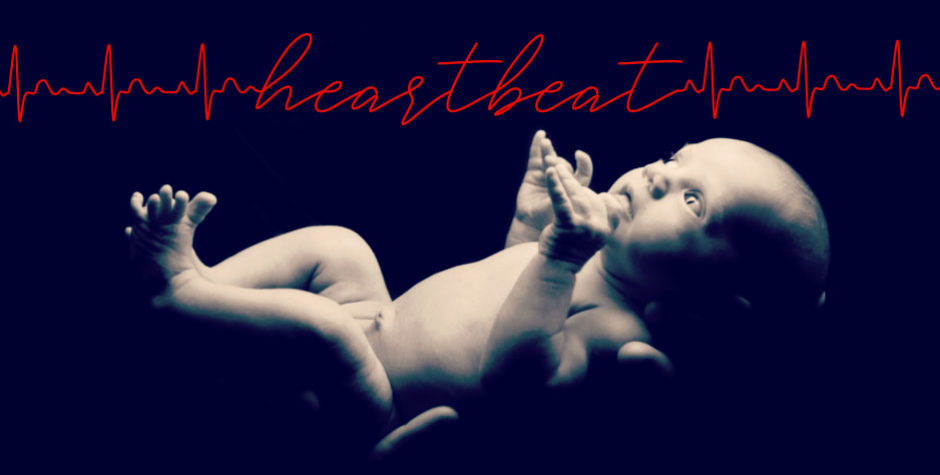

“Right to a child for all women”: the ECHR’s slippery slope
Right to a child for women at the ECHR
The ECLJ intervened before the ECHR in several of the cases mentioned in this article.
On an unprecedented scale, the European Court of Human Rights (ECHR) has decided to judge a series of patch-up reproduction cases. At issue: the complete separation between sex, procreation and parenthood; and the erasure of the biological family as a reference of social norms.
These cases show how the desire to have a child can lead to madness; and how that madness can become reality thanks to technic. Now a reality, it is now attacking the legal norms to transform this desire into rights and to reshape, through this, social reality to its image, in the illusory hope to become normal itself.
Here is first a summary of these cases: we shall then see what problems they pose.
The desire to have a child with a dead person
A French woman complains about the refusal of the French authorities to transfer the frozen sperm of her dead partner to a Spanish hospital where she would be able to have a post mortem insemination. She thus contests the French law which imposes that the man and the woman forming the couple wishing to resort to a medically assisted procreation be “alive” and that the conservation of the gametes be stopped at the death of the person. (V. D. v. France).
The desire of a mother to be the father of the child
In another case, the real mother of a child conceived with an anonymous sperm donation complains of not appearing as “father” on the birth certificate, on the grounds that, being a transsexual, she had already got to be identified as “man” on her own civil status. She sees being described as a “mother” as a violation of her own rights and those of the child in that it “fundamentally contradicted their perception of their relationship” and compel them to disclose frequently the mother’s transsexuality. (O.H. and G.H. v. Germany).
The demand for a presumption of motherhood for the « wife of the mother”
Two German lesbians complain, on their own behalf and on behalf of the child, that the partner of the woman who gave birth does not benefit from a “presumption of motherhood”, unlike men in heterosexual couples who benefit from a presumption of paternity. They denounce a discrimination, even though the “wife of the mother” was able to adopt the child. The case is complicated by the fact that the child was carried by one woman and conceived with the ovum of the other and the sperm of an anonymous donor; which is forbidden in Germany. (R.F. and others v. Germany).
The desire to both be “mothers” of the same child
Two Austrian lesbians complain of appearing as “Mother / Parent” and “Father / Parent” on the birth certificate of a child conceived and carried by one of them and adopted by the other. They denounce a discrimination compared to heterosexual parents in that these mentions suggest that the woman mentioned as “Father / Parent” is not the mother of the child. They each want to be “mother” or “parent” on the child’s birth certificate in order to erase any biological differentiation (S.W. and Others v. Austria).
The obligation for states to establish "homoparenthood"
Two other cases seek to force Poland to register same-sex persons as parents of the same child. In one case, the child was conceived with ART for the benefit of an Anglo-Polish couple of women living in the UK. In the other case, twins were conceived through surrogacy in the United States for the benefit of an Israeli-Polish couple of men living in Israel. They denounce Poland’s refusal to transcribe the children’s foreign birth certificates, believing that this decision violates their “right to be considered as parents” and affects the nationality and inheritance rights of the children. They also denounce a discrimination on the grounds of their homosexuality (A.D.-K. and Schlittner-Hay v. Poland cases).
The desire to be declared mother of a child conceived and carried by other women
In three other cases, couples complain of France’s refusal to recognize as mothers, on the grounds that they have not given birth, women who bought children born to surrogates abroad. They ask the ECHR to condemn France to transcribe in full on the registers of civil status the birth certificates established abroad by virtue of surrogacy agreements, even though this practice is prohibited in France and that no biological link is established between the children and the buying women (Braun, D., and Maillard v. France cases).
These cases are symptomatic of categorical claims of patch-up reproduction
- The applicants contest the fact that law still be based on the imitation of human nature, which, itself, is biologically completely heterosexual. They want to dispose of filiation and the identity of the children;
- They completely erase the surrogate mother as well as the father who becomes a mere source of sperm, while, at the same time, boasting about their own genetic link with the children, when appropriate;
- They pretend to act in the name and best interests of the children, all the while ignoring, or even despising, the right and interests of the latter to know their biological parents and to be raised by them (CRC, art. 7);
- They place society before a fait accompli and demand it to regularize a situation that they themselves provoked by going abroad to circumvent interdictions made in their respective countries;
- They demand the European judges to condemn national legal choices.
A sequence of jurisdictions
These requests seem insane, but they are in line with previous judgments of the ECHR. Thus, it is because the sex change in the civil status is no longer subordinated to a morphological change that a mother can claim to be a father (A.P., Garçon and Nicot v. France). It is because the ECHR condemned Austria in 2013 to legalize the possibility of adopting the same-sex partner’s child that Austrian women now claim to be both “mothers” (X and Others v. Austria). Similarly, it is because the ECHR condemned France in 2014 to transcribe the paternal filiation of children born of surrogacy abroad that the “intended mother” now claims the same right for herself (Mennesson v. France).
Decision after decision, there is indeed a ripple effect, a “slippery slope”, following an inclination that the Court seems to adjust at discretion according to the time, as it is surprising that all these cases - some of which are quite old - be made public at the same time. In terms of surrogacy, the President of the ECHR acknowledged in 2015 that the liberalization of this practice operates at a “pace imposed by our Court”. Other cases will follow, each time more shocking, such as “multi-parenthood” cases in which three, or more, adults will demand to be “recognized parents” of the same child. Likewise, there will be no serious reason to oppose the liberalization of polygamy and polyandry.
In fact, once the law breaks off from natural reality in favour of mere self-determination, nothing can stop it. And it becomes very difficult for the judge to justify a limitation to individual desires. This is explained firstly by the fact that Western society has lost the sense of nature and the common good which alone could justify a limitation to individual desires. Indeed, nature, by conditioning us, sets a limit to our desires, and the common good determines its accuracy. This is also explained by the fact that human rights have been designed to defend individuals from social oppression, to the point of making it a weapon against all social norms. But without reference to the common good and to nature, these norms are gradually, and inevitably, dissolved in private life. Human rights thus become the vehicle of self-assertion and selfishness.
A century ago, already, proponents of artificial reproductive control techniques believed that separating procreation from sexuality would be a decisive step forward in the process of evolution of humanity. They thought that man would thus gain the power to be rationally and responsibly engendered and would no longer be the plaything of a blind nature. They believed that man would be wiser and more ingenious than nature, that he might attain a higher degree of perfection and happiness, and that he could “spiritualize” sexuality. That was the ambition. A presumptuous ambition when we observe today its fruits: the limitless madness of procreative patch-up, eugenics, and the massive use of pornography and abortion ... Nature is much wiser than us.
The technical mastering of nature should not exempt us from respecting its laws. Nature, of course, is a good mother, patient and silent; but it is rightly said that it never forgives; and it is always in pain that we are reminded of it.
Thus, it is the pain of children born of an anonymous donation of sperm which reminds us today of our natural need to fully know our identity, including in its physical and filial dimension;
It is also the pain of children born of surrogacy and anonymous-ART and of their “biological” parents, faced with the legal prohibition to establish their filiation, which reminds us of the importance of blood ties;
It is also the pain of surrogate mothers who do not want to give up their children, which reminds us of the importance of motherhood;
Likewise, it is the pain of children born of reproductive and family patch-ups that reminds us of the natural need and right to be loved and raised by one’s true parents in a balanced family.
If our society is no longer able to see the injustice of these situations, at least perhaps we will be sensitive to the suffering they cause.
And if we remain insensitive to this suffering, we will then face the violence it will not fail to engender in turn.
To give in to the demands of procreative patch-up is cowardice before our responsibility to protect future generations.
Translation by BMG












